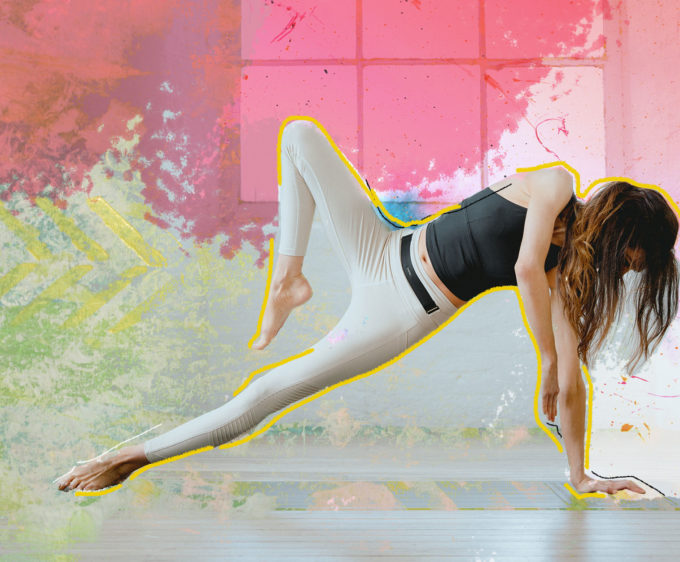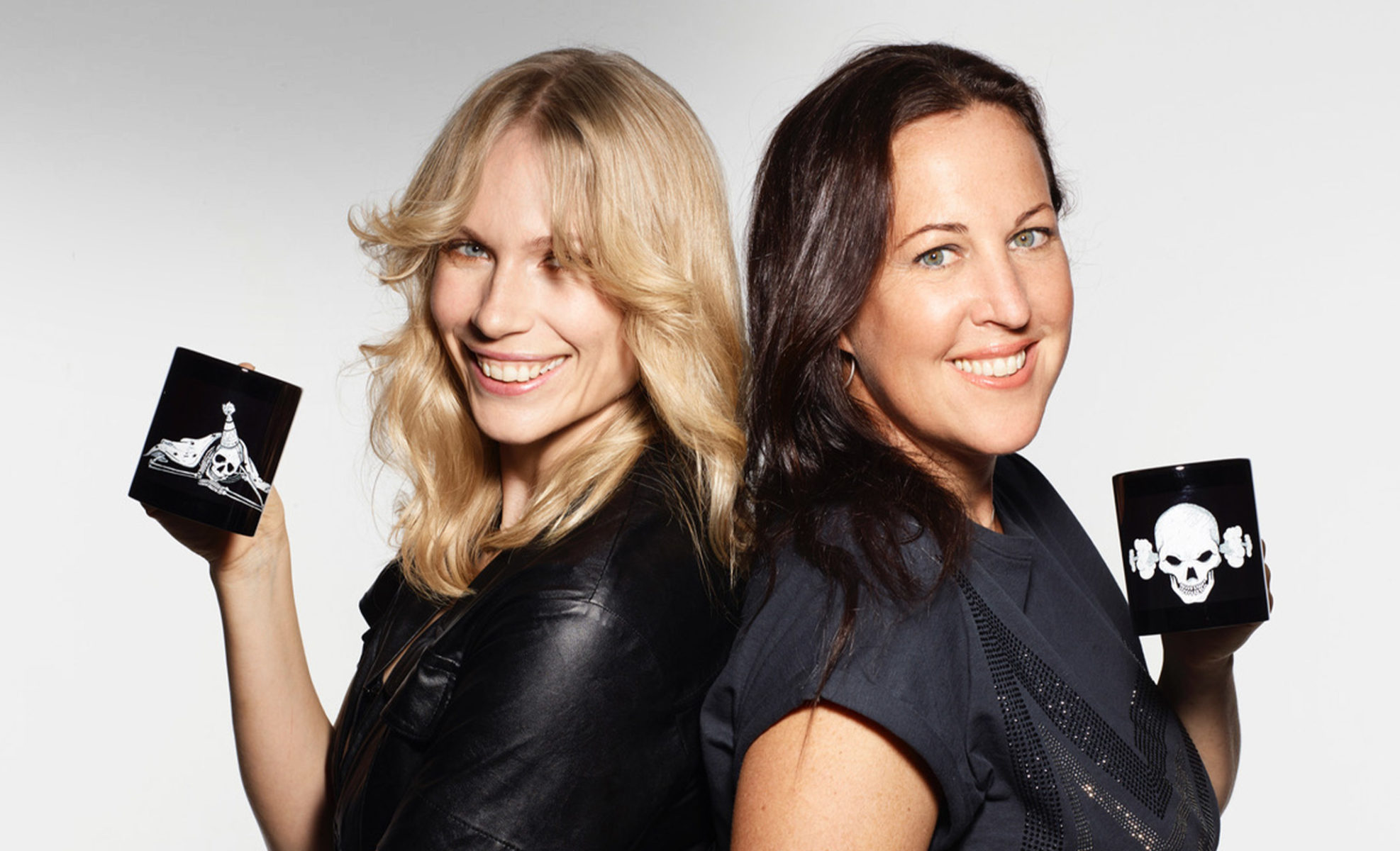
Witches Of Brew
Brewing up a storm in the tea market: we meet two women behind the new wellness brand that plans to leave coffee in the shade
By Anna Hart
Tea, bless it, has something of an image problem. It’s coffee that Millennials and Gen Z ostentatiously obsess over, talk about, place artfully in our Instagram shots. It’s coffee that is considered “fuel” for all sorts of high-octane, successful endeavours, from professional athletes to artists and novelists and entrepreneurial high-flyers. But with their newly-launched range of Tuuli Tea, two nutritionists are fighting for tea to be taken more seriously, challenging coffee’s monopoly over our mugs, and repositioning tea as a potent everyday wellness intervention for high-achievers.
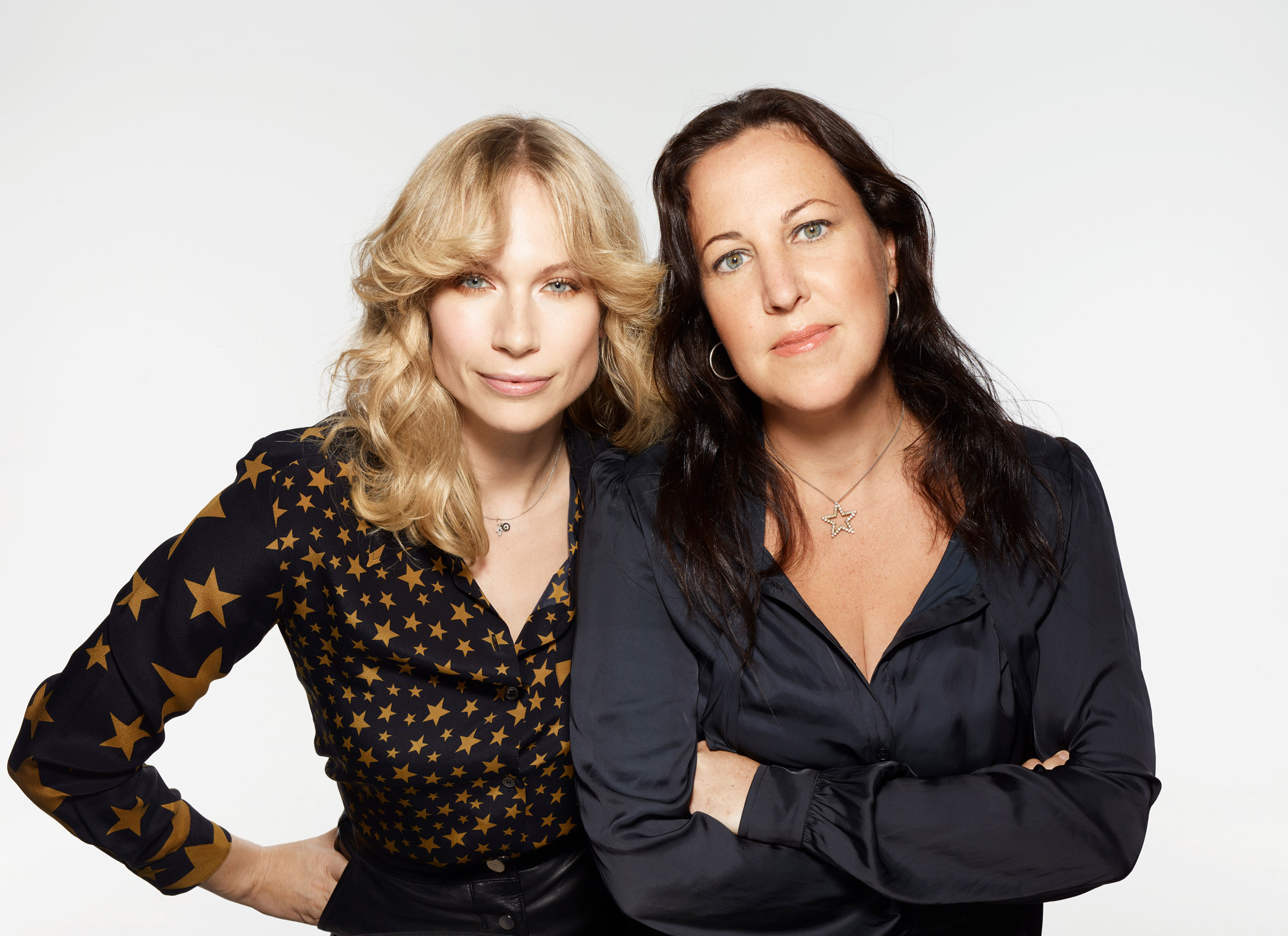
Sophie Ricard and Tuuli Shipster know all about the challenges of modern life. Before she met Tuuli on a nutrition course, educator Sophie worked in the charity sector, which she describes as “insane hours and high stress levels for minimal money”. Tuuli is a model turned Fierce Grace yoga teacher, married to the photographer Rankin. “We began blending bespoke herbal infusions for friends and family to help everything from hangovers to heartbreak,” she says. “And we spotted a gap in the market for a set of herbal teas that are more honest, that targeted real issues.”
There’s nothing else out there quite like Tuuli Tea. The branding is irreverent, dark and strangely sexy, a series of monochrome skull-emblazoned illustrations, the polar opposite of the cutesy pastels and twee descriptions of mainstream herbal tea brands. One blend is called ‘Get Shit Done’, a caffeinated yerba mate hit which Sophie describes as “energising, helping you conquer the to-do list, perfect for when you’re juggling life.” There’s rosehip and rooibos in ‘I Hate The World’, “for when you see red.” ‘Fucking Full’ is a spicy digestive-soothing blend of ginger and cardamom, “for after an epic Sunday Roast, or after eating an entire box of Quality Street on the sofa.” There’s a blend for hangovers – ‘Morning After (The Night Before)’ – and even one called ‘Heartbreak’, described by Tuuli as “a hug in a mug, combining ashwagandha, aniseed and rose petals.”
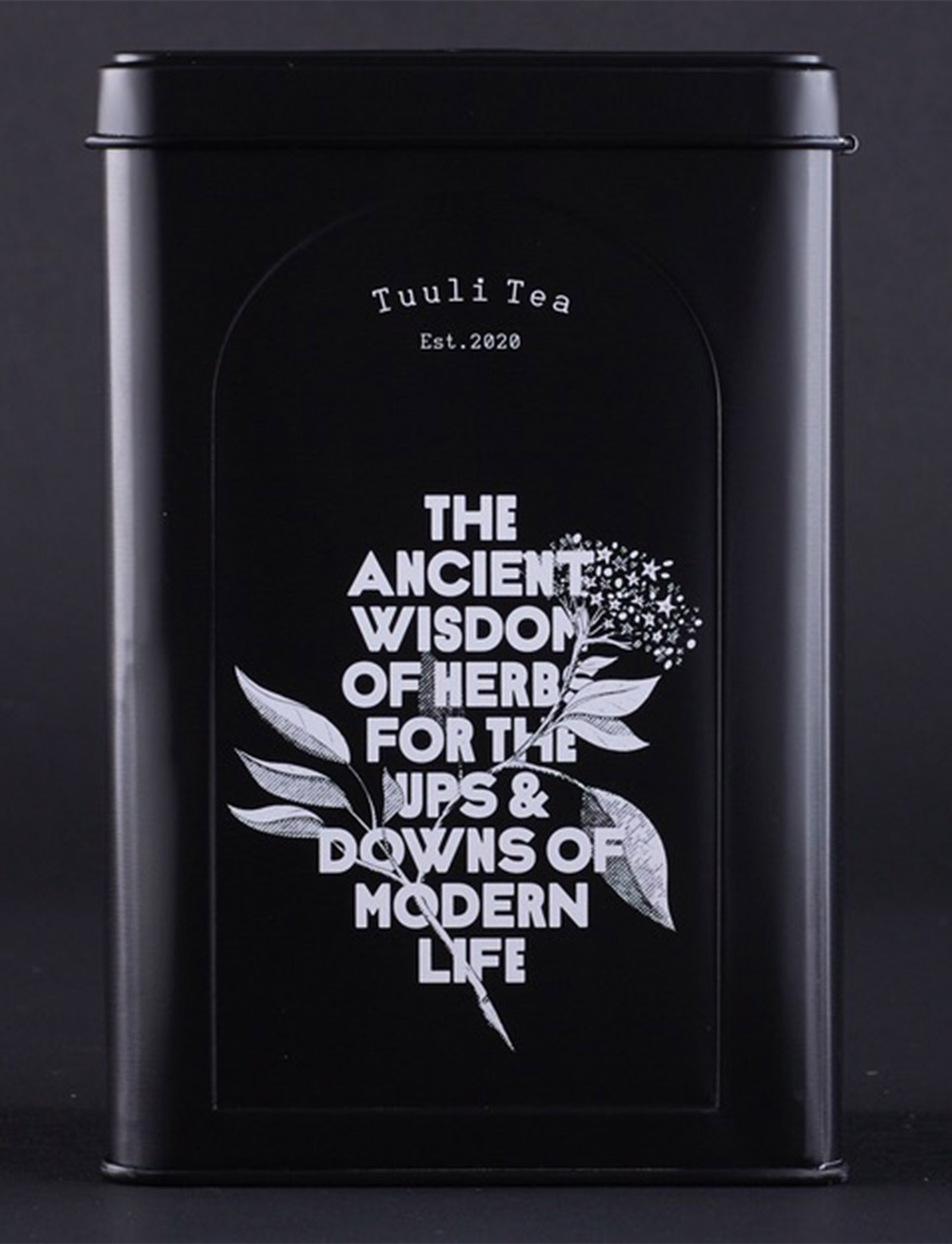
As a herbalist (Tuuli) and nutritionist (Sophie), the friends set out to create potent tea blends that would medicinally support people through the ups and downs of modern life. “But we also wanted to create a wellness brand that is supportive, honest and inclusive,” says Tuuli. “Most herbal tea brands focus just on the positive, and the brand messaging is intimidatingly perfect. We believe that embracing real life – the fuck-ups as well as the positives – is a more balanced approach.”
Of the ten teas in their current mood-oriented menu, I ask if they have a favourite blend or herb. “Passionflower would be my desert-island herb, if I could only consume one tea forever,” says Tuuli. “It’s calming and restorative.” Sophie groans at the question. “You know the way you have different outfits for different feelings? This is how I choose my tea, too – I reach for each blend depending on what is going on. And that’s the whole point of our teas: there’s a blend that helps with every single moment.”
BALANCED
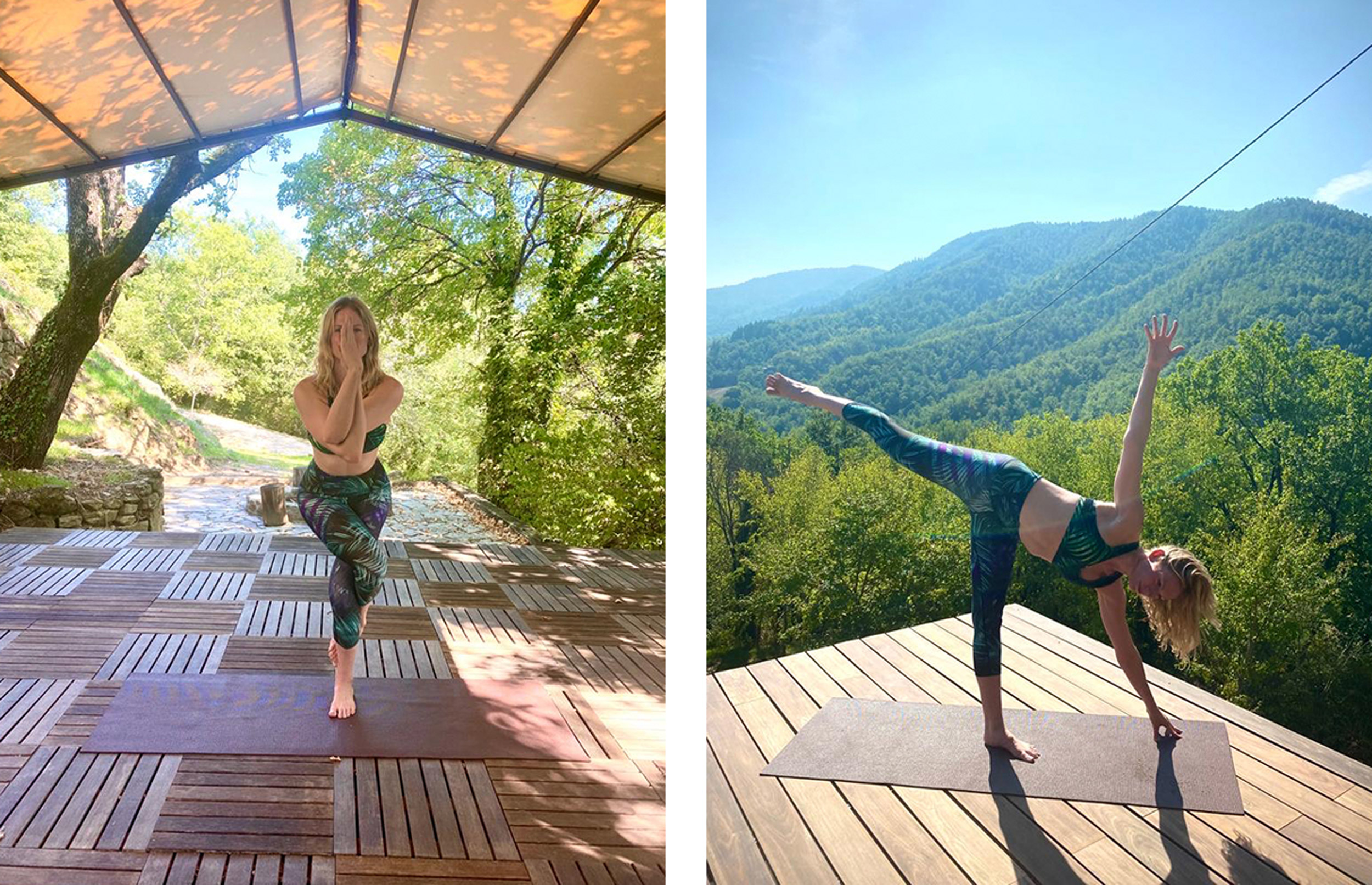
Converting coffee drinkers, by the way, is 100% part of the Tuuli Tea mission statement. “We always wanted tea blends with deep and distinct flavours, that stand up to the pleasure a coffee drinker gets from a coffee,” says Sophie. “We’ve got a lot of hardcore coffee drinkers who previously thought herbal tea is wishy-washy and tasteless, but love our teas.” Both are reformed coffee drinkers. “I loved the taste, but coffee always made me anxious and tingly,” says Tuuli. “I think coffee plays into the ‘push harder, go faster’ mindset that has dominated the health and fitness world. But this is changing… in the yoga world, for example, there’s a growing recognition of the soft power of gentler, slower practices, in contrast to intense workouts like Rocket Yoga.”
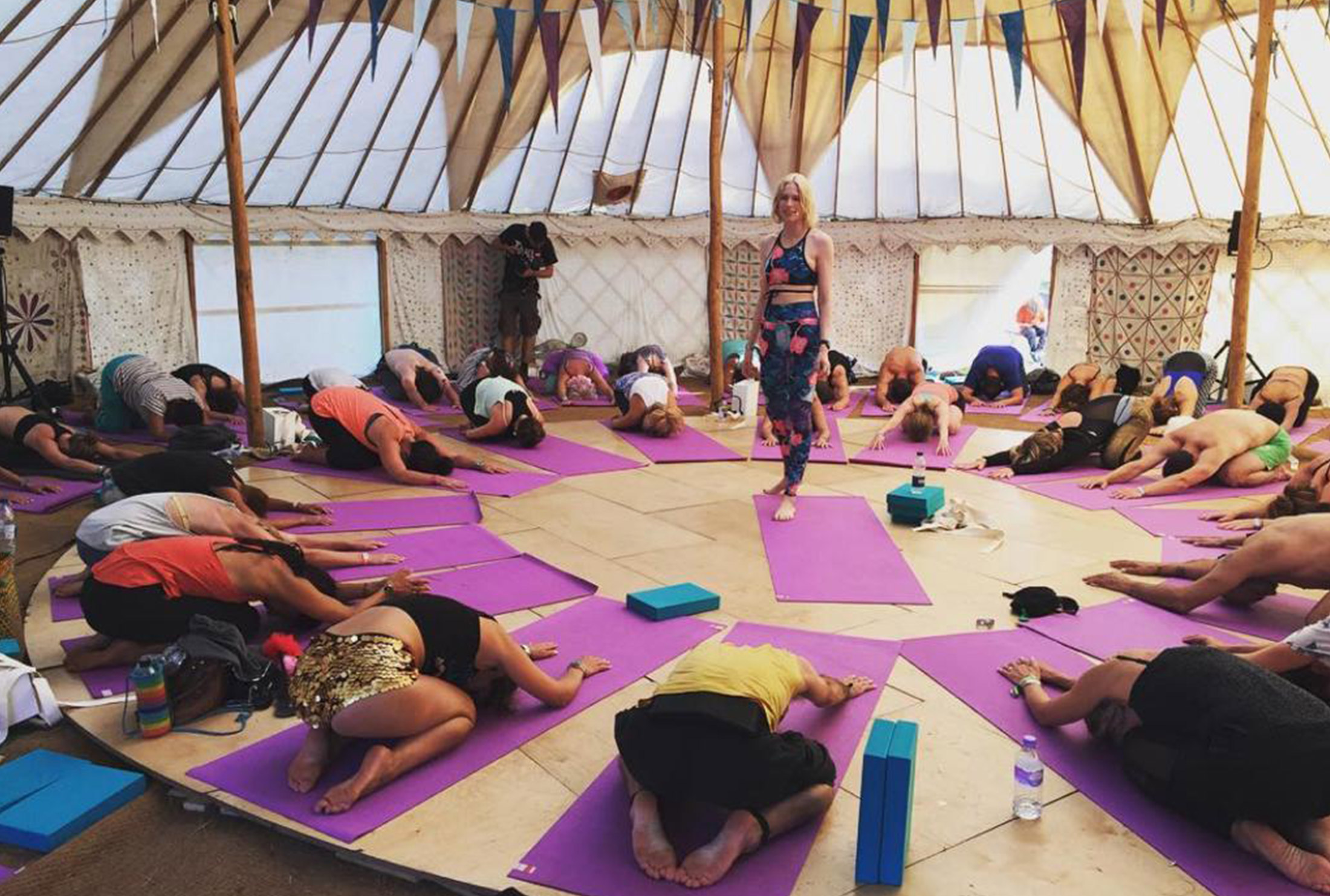
WELLNESS
This quest for balance is one thing Tuuli and Sophie immediately bonded over when they met. “I think it’s no accident that so many people from the fashion industry end up in the wellness sphere,” laughs Tuuli. “From the age of 16, when I first began modelling, I lived that life, travelling a lot, spending time on different sets where you have no control over what you’re eating, failing to look after yourself. When I was younger, I could handle all this, but as I got older, it took its toll on me and I began to think about nutrition, exercise and mental wellbeing more seriously.”
After training as a yoga teacher, Tuuli decided to study nutrition because she kept being asked questions about it that she felt unqualified to answer. “And I’m the most unlikely yoga teacher ever – I quite literally couldn’t touch my knees before I started,” she says. “I tried yoga because I’d run two marathons and wanted to run another, but my knees were completely knackered.” A friend suggested hot yoga, which Tuuli initially resisted but out of curiosity and desperation, gave it a try. “I ran my third marathon 20 minutes faster, with no knee pain whatsoever,” she says. “Yoga soon replaced running for me as the bigger passion… and I became a yoga teacher because of the impact it has had on my own life.”

On the first day of her nutritionist course, she met Sophie, an educator who was drawn to the course because of what she’d seen while working with children and teenagers.“I watched teenagers come in each morning with their ‘breakfast’ of a can of coke and a bag of crisps, but in education, there is very little said about the connection between nutrition and wellbeing and we tend to ignore the link between body and mind in these children we’re trying to help,” she says. “Plus I had a two-year-old daughter, which refocused my attention on how we can live better, nourish ourselves and achieve balance in our lives.”
In her ten years working in the charity sector, Sophie saw first-hand the disconnect between the booming wellness industry and the people who most needed support. “Sadly I think the whole wellness industry feels unattainable to many people, as if we have to be completely perfect in order to buy that product, or participate in that exercise class… but nobody feels perfect all the time,” she says. “We wanted to create a wellness product that feels real, that everyone can afford, that everyone has time for, that addresses all the ups and downs of life.” Tuuli adds, “We also wanted to get away from the idea that wellness is automatically about denying yourself treats, or is about guilt. Living healthily shouldn’t get in the way of living life.”
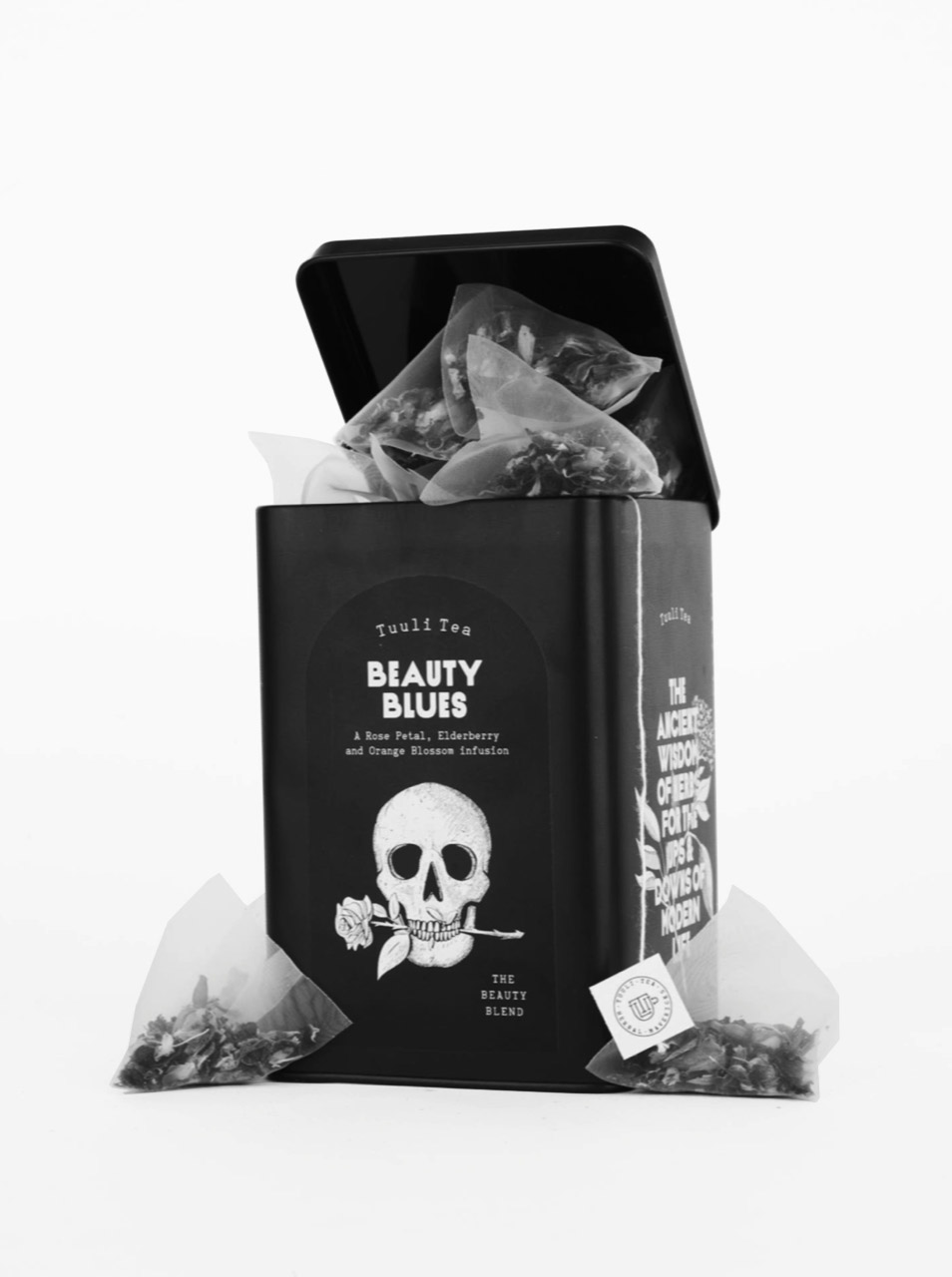
At £10 for a box of 20 infusions (two of each blend), Tuuli Tea isn’t cheap, but compared to other wellness products on the market, and weighed up against a daily coffee habit, they’re unarguably accessible.“Tea fits into any occasion,” says Sophie. “Drinking a cup of tea is a short but powerful ritual we can all fit into our lives.” Tuuli nods. “Herbal tea is sometimes viewed as a less powerful version of herbal medicine, but I disagree,” says Tuuli. “Tea’s very ordinariness is what makes it powerful.”



